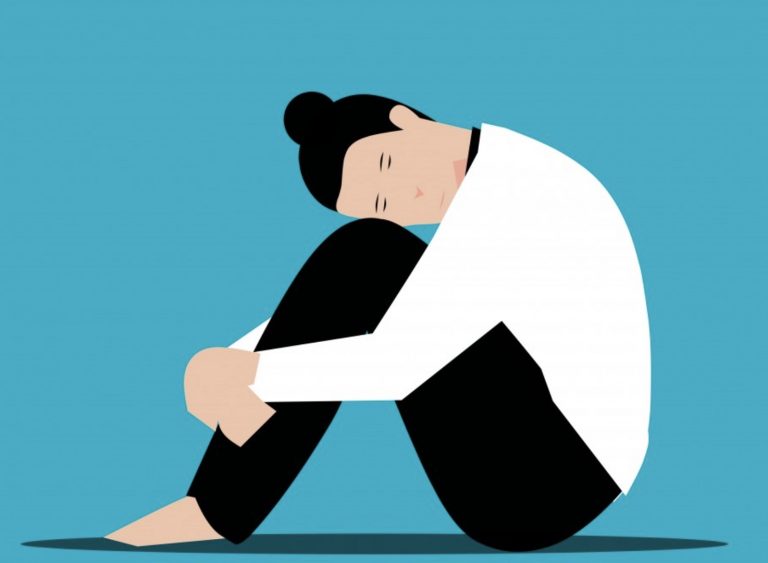Do you often feel irritable, on edge, or restless? Do you find yourself excessively sweating and struggling to catch your breath during typical daily activities? If any of these symptoms sound familiar, you may be experiencing anxiety. It’s normal to feel nervous in stressful or dangerous situations. However, frequent and excessive anxiety can make it difficult to enjoy your life.
If you frequently suffer from anxiety, a few surprising habits could be to blame. Outlined below are seven causes of anxiety you may not have considered.
Story Stages
1. Lack of Sleep
A bad night of sleep doesn’t just leave you groggy the next day. It can also ramp up your anxiety. When you’re not sleeping well, your body creates more of the stress hormone cortisol, causing you to feel anxious. Luckily, there are ways to get better sleep and improve your mental health.
If your nighttime problems are chronic, you may have sleep apnea, a common disorder that impacts your breathing while you sleep. Constantly being woken up by the snoring that accompanies the condition can prevent people from settling into deep slumber.
If you’re diagnosed with sleep apnea, a continuous positive airway pressure (CPAP) machine may help. It delivers pressurized air through a CPAP mask as you sleep, keeping your airways open and allowing you to get better rest.
2. Too Much Caffeine
Those jitters you feel after your fourth cup of joe aren’t in your head. Excessive caffeine consumption can lead to increased heart rate, nervousness, and other symptoms associated with anxiety. As a rule of thumb, it’s best to keep caffeine consumption under 400 milligrams a day. That’s about four cups of coffee.
If you find yourself regularly drinking more than that, you should consider reducing your caffeine consumption. Swapping coffee for decaffeinated tea or other beverages can still provide you with a delicious drink without the negative side effects.
3. Skipping Breakfast
Intermittent fasting has recently gained popularity, with certain versions encouraging people to not eat until lunch. While some people may experience benefits from skipping breakfast, it can increase anxiety in others. Forgoing meals can lead to a drop in blood sugar. When this happens, your body compensates with increased adrenaline, causing you to feel anxious.
Instead of skipping breakfast, start your day with a balanced, healthy meal. Try to incorporate at least 20 grams of protein into your first meal of the day. This will help you stay full longer and keep your blood sugar stable. Examples of protein-rich breakfasts include protein shakes, yogurt, and eggs on toast.
4. Constant News Alerts
From acts of violence to global pandemics, it seems like the news reports something horrific every day. Constant exposure to alarming world updates can activate your body’s fight-or-flight response. This releases cortisol and adrenaline, causing insomnia, fatigue, and anxiety.
As a citizen of the world, it’s important to remain informed. However, it’s equally important to protect your mental well-being. To strike a balance between the two, limit your news consumption to 30 minutes a day. This will help you stay up to date on current events without causing extreme stress and anxiety.
5. Too Much Booze
Drinking a few too many beers may seem harmless, but you’ll pay for it the next day. Not only does excessive alcohol consumption lead to a raging headache, but it can also increase your anxiety. Hangover anxiety refers to the anxious feelings some people experience the morning after a night of drinking. This may include feelings of embarrassment or uncertainty over what they did or said.
To help prevent hangover anxiety, drink smarter next time you go out with friends. Limit your alcohol intake to just a few drinks, and try to drink water between alcoholic beverages. Water alone won’t prevent a hangover, but it can help you pace yourself throughout the night.
6. Inactivity
When people are anxious and busy, the first thing they often stop doing is exercise. However, making the time to move your body is exactly what you need to keep your anxiety at bay. Getting your heart pumping — deliberately — increases the feel-good chemicals in your brain like serotonin. These chemicals can help improve your mood and reduce anxious feelings.
If you haven’t exercised in a while, you may not know where to start. The good news is, you don’t need to sign up for an hour-long spin class to reap the mental health benefits of movement. Simply dancing around your living room or taking your dog for a walk can make a world of difference.
7. Your Choice of Career
Everyone experiences stress at their job from time to time. However, if you’re in a stressful profession like emergency medicine or firefighting, you likely experience more stress than most. This can lead to an increase in cortisol production, resulting in anxiety. In fact, one survey found that 28% of first responders experienced moderate to severe anxiety.
To help combat anxious feelings, it’s important to find tools to manage your stress levels. Many first responders work with mental health professionals to help them manage their emotions after traumatic events.
You don’t have to live your life feeling on edge. Taking the time to discover the cause of your anxiety can help you better understand how to manage it.
